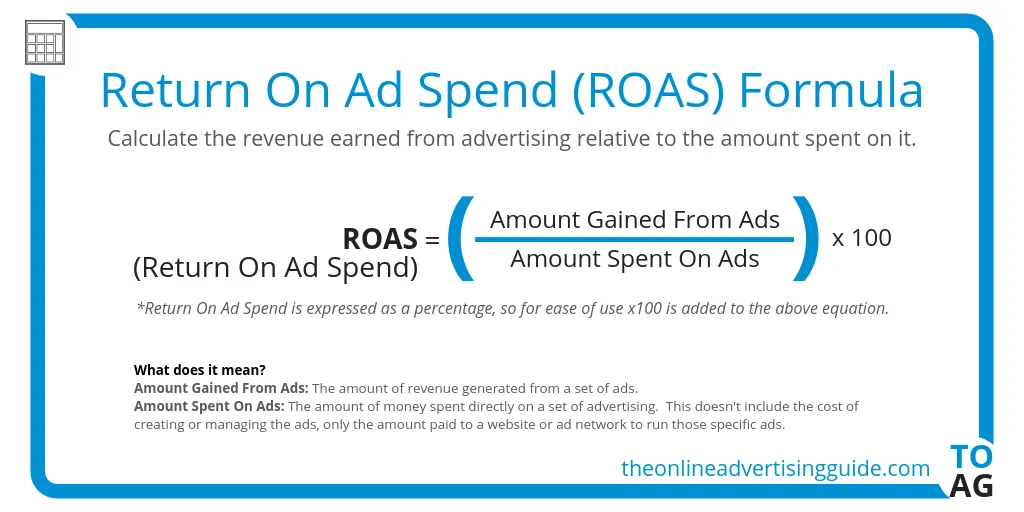
Word-of-mouth is powerful, but not enough to sustain a thriving business. To grow your business successfully, you need to delve into the world of online advertising.
Research indicates that many brands overestimate their ad conversion rates by up to 4,000%, highlighting the challenge of achieving a positive ROI from advertising efforts.
Here are seven proven online marketing strategies to help you navigate the digital landscape and boost your brand's visibility.
Focusing Your Mindset for Online Advertising
Understanding your audience is paramount in any marketing strategy. When embarking on online advertising, shift your perspective to that of your target customers to create ads that are engaging and not intrusive.
Authenticity and helpfulness in your ads will resonate more with your audience than pushy sales tactics. Remember, the best ads seamlessly integrate into the user experience.
1. Choosing the Right Channels for Advertising
Identifying the most effective channels to reach your target audience is crucial for maximizing your ROI. Consider the following key advertising platforms:

Paid Social Media Advertising
Utilize platforms like Facebook and LinkedIn to target specific demographics based on interests and behaviors. Tailor your campaigns to resonate with your audience and optimize your bidding strategy for success.
Pay-Per-Click (PPC) Advertising
Google Ads and YouTube offer opportunities to reach audiences actively searching for products or services. Don't overlook search engines like Bing and Yahoo! for potential untapped markets.
Native Ads and Sponsored Content
Create sponsored content that provides genuine value to your audience and aligns with trusted media outlets to enhance your brand's reputation.
Display Ads
While traditional banner ads can be effective, ensure you target them to the right audience to avoid wasting ad spend.
Email Marketing
Personalized and organic email campaigns remain a potent tool for online advertising. Focus on providing value to your audience rather than just selling.
Podcast Advertising
Tap into niche audiences through podcast sponsorships and interviews to increase brand awareness and engagement.

2. Collaborating with Affiliates and Influencers
Engage with micro-influencers or authoritative affiliates to leverage their loyal fan base and educate potential leads in the B2B space.
3. Crafting Engaging Ads
Create visually appealing and engaging ads across all channels using color psychology and action-oriented language to motivate your audience to take action.
4. Optimizing Landing Pages
Ensure your landing pages are relevant, user-friendly, and mobile-responsive to maximize the effectiveness of your advertising campaigns.
5. Remarketing to Website Visitors
Retarget site visitors with friendly reminders to encourage them to return and complete their purchase journey.
6. Integrating Content Marketing with Advertising
Use content marketing to enhance your brand's visibility and establish thought leadership. Avoid overtly promotional content and focus on providing value to your audience.
7. Analyzing and Improving Through Analytics
Implement robust analytics to track and optimize your advertising efforts continually. Experiment with different strategies to enhance the performance of your ads.

Partner with Marketing Insider Group for Online Advertising Success
Online advertising is just one component of a comprehensive marketing strategy. For expert guidance on combining content marketing with your advertising efforts, trust Marketing Insider Group to help you drive traffic and engage your target audience effectively.
Frequently Asked Questions
Are there any dangers associated with digital advertising?
Yes, digital advertising is fraught with dangers.
For starters, you must ensure you protect your online reputation by being careful about what you say on social networks.
You must ensure that your content does not infringe any intellectual property rights of others.
In addition, you risk losing control of your brand image if you do not monitor your online presence closely.
Lastly, you may be subject to identity theft if someone uses your details without permission.
How to protect your online reputation
- Take Care of What You Share on Social Networks
- Ensure All Content Is Original And Does Not Infringe On Anyone Else's Intellectual Property Rights
- Monitor Brand Image
- Use Strong Passwords
- Avoid Using Personal Details Without Permission
- Report Any Unauthorized Activity Immediately
- Don't Post Photos Of Yourself Or Others In A Disturbing Way
- Never Give Out Your Social Security Number
- Keep Up With The Latest News
- Avoid Scams
- Secure Password
- Always Check For Updates
- Do not share too much information
- Take care when you give credit card numbers
- Do Not Send Money Through E-Mail
- Look out for fake websites
- Negative reviews can hurt your business.
- Check Your Credit Reports Regularly
- Keep An Eye On Your Privacy Settings
- Ask someone who really knows you before you share something.
What are three examples of internet marketing strategies?
Internet Marketing is a term that encompasses online activities intended to promote products, services, and other related topics. Internet marketing includes email marketing, social media marketing, search engine optimization (SEO), pay-per-click advertising (PPC), and website design.
This does not mean you need to spend money to make it happen. There are many other ways to earn income that don't require you to spend any money. You will get a better return on investment if you put more money into each method.
The most common form of internet marketing is email marketing. This involves sending emails out to potential clients, informing them of your business and any new offers.
Another popular way to market is via social media. Social media sites such as Facebook, Twitter, and LinkedIn enable users to share information and interact with friends and family. Businesses also have the opportunity to reach out to their customers and raise awareness about their products and services through these sites.
Search Engine Optimization (SEO), which is a technique that increases websites' visibility on major search engines, can be used to boost their visibility. Webmasters have the ability to increase traffic to their sites by improving the quality or quantity of relevant backlinks.
Website Design is the art or creating a website that looks good and works well. Website designers design the website's layout. Website designers also ensure accessibility standards are met and that technical specifications are adhered to.
Advertising via Pay Per Click (PPC), where advertisers bid for keywords relevant to their products. Advertisers are paid for each click on their ads. PPC ads often appear at either the top or lowest search results pages.
What are the different types of marketing?
Marketing can be divided into 4 categories: Direct Mail Marketing (Traditional Advertising), Public Relations (Public Relations) and Digital Marketing. Each goal has a different purpose and should each be used for its intended purpose. You can combine them to achieve your goals.
Statistics
- From 2020 to 2022, eMarketer predicts that digital marketing will grow by 36% and take up 54% of marketing budgets! (marketinginsidergroup.com)
- A poll earlier this year found that 14% of older Gen Z's had bought an item in the previous six months based on an influencer's recommendation. (influencermarketinghub.com)
- Meanwhile, a PartnerPath poll found that co-marketed ads help 68% of consumers arrive at a buying decision before even speaking to a salesperson. (influencermarketinghub.com)
- This allows us to deliver CPCs that are 80% less than average and CTRs 4-5 times higher than average. (marketinginsidergroup.com)
- Today, 81% of brands around the world have affiliate programs. (influencermarketinghub.com)
External Links
neilpatel.com
influencermarketinghub.com
youtube.com
blog.hubspot.com
How To
What is your marketing strategy
Are you familiar with the expression, “If they build it, they will follow”?
Well, you're wrong.
While it takes hard work to build something, it isn't enough to attract customers. Internet Marketing Principles are necessary to reach your target audience in order to grow your business.
Internet Marketing Principles are guidelines that marketers use to create websites, blogs and email campaigns that generate leads or sales.
You can sell handmade jewelry online by learning these Internet Marketing Principles.
These are just a few examples of Internet Marketing Principles.
- Content is king – Your content needs to be unique and compelling. You will lose credibility as a source for information if you copy content from others.
- Build trust – People trust recommendations from friends and family over advertisements and Adsense. You should only recommend products that you trust.
- Be personal – People prefer to talk to real people rather than robots. Your website should look human and not robotic.
- Offer value – People don't give away anything unless they feel they are receiving something worth their time. So, offer them something valuable in exchange for their contact info.
- Tell stories – Stories are powerful tools for connecting audiences. They help you tell a story and connect to your audience.
- Giveaways – Give away products to increase brand awareness and build loyalty.
- It is important to use call-to-action buttons because they encourage users to take action.
- Make sure you test everything before you publish your website.
- Keep it simple – Simple is often better than complex. Keep it as simple as possible. A website that is simple to maintain and easy to update will be more successful.
- Clear goals are easier to measure.
- You must measure everything. It is vital to improve your marketing efforts by measuring your progress towards your goals.
- Focus on conversion. Conversion is turning visitors into buyers.
- Get feedback. This will help you improve your marketing efforts.
- Track results – You can track your results and identify areas you could improve.
- Repeat – Repetition creates momentum.
- Optimize Your Marketing Efforts – Optimization ensures your marketing efforts are efficient.
- Stay consistent – Consistency keeps your brand recognizable.
- Reward yourself. Rewards can motivate you to do better.
- Learn from other people – This is one way to avoid making the exact same mistakes.
- Never stop learning – Always seek out new ideas and techniques.
- Think long-term – Long-term thinking is necessary to achieve sustainable growth.
- Trust your gut – Sometimes intuition is your best guide.
- Every day should be treated as a test. Even though mistakes are inevitable, they teach us lessons we wouldn’t otherwise have learned.
- Know your strengths and weaknesses. This will help you to overcome obstacles.
- Don't get discouraged – Everyone fails at least once. But don't let failure discourage you. Just try again.
- Take risks – Sometimes taking risks is necessary in order to move forward.
- Enjoy the journey – Enjoying the journey is essential to living a happy life.
- Be passionate – Passion fuels motivation.
- Be who you really are. It is essential to build relationships.
- Self-awareness is key to self-improvement.
- Find your tribe. A supportive community of likeminded individuals is invaluable.
- Make a vision board. Vision boards can be a great tool for visualizing your future.
- Ask questions. Questions are the gateway into knowledge.
————————————————————————————————————————————–
By: 6954
Title: Effective Online Advertising: 7 Strategies for Success
Sourced From: internetlib.org/ready-to-advertise-online-7-strategies-to-get-started/
Published Date: 7/11/2023 5:39:50 PM
